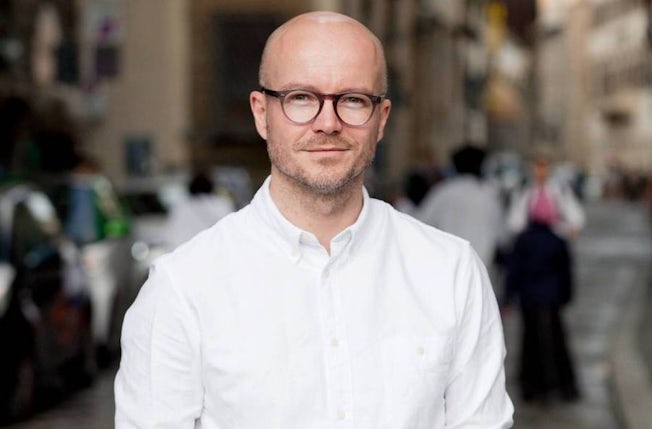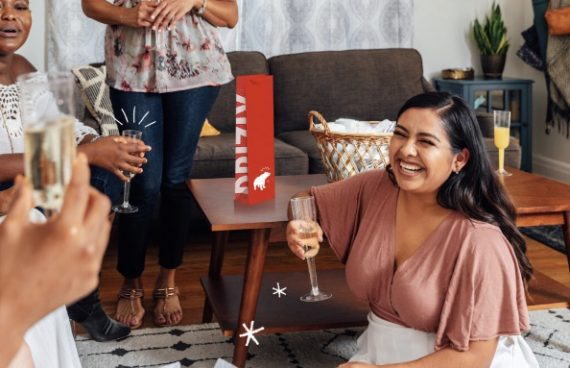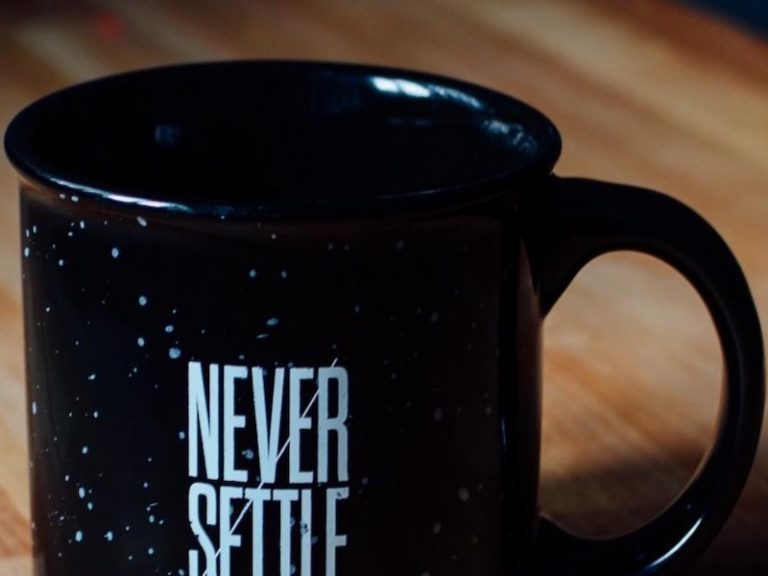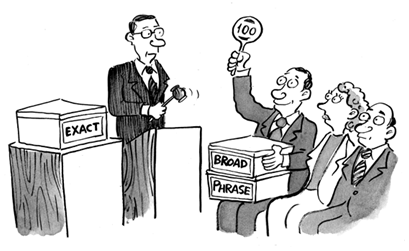And through innovative new platforms, such as LTK Creator Shops™, LTK’s app-based storefronts, each curated by content creators, brands and creators are able to optimise the way that they utilise social media platforms to grow a shopping audience. LTK Creator Shops™ enables consumers to quickly search and identify anything styled by their favourite creators, which can then be easily purchased through LTK.

Tell us about your role… how did you get into the industry?
With this will come increased transparency between creators and brands, which is needed for both parties to accurately measure direct sales and ROI and tailor their approach during on-going campaigns.
Dave Murray is Managing Director Europe of global influencer marketing platform, LTK. I recently spoke with Dave to hear more about his role, how the influencer industry is evolving, and LTK’s ambition to be the driver of ‘creator commerce’.
To ensure consumers are connecting with creators as seamlessly as possible, innovations are regularly made to the LTK app. Most recently, these have included testing of price drop alerts (coming soon) – real-time notifications telling shoppers when one of their saved items or something in their wish list goes on sale – through to updated product search filters and greater personalisation.
LTK has also seen a significant rise in shoppable video content across social platforms and in the LTK shopping app for its ability to dimensionalise creator content and make shopping more engaging. The social platforms most used by influential shoppers, from LTK’s 2021 Influential Shopper study, heavily revolve around video content and include Instagram, Facebook, YouTube and TikTok. TikTok in particular is performing well, as it allows creators’ short-form video content to remain up longer, giving creators more time to reach their audience.
Covid-19 has had a significant impact on influencer marketing, with people consuming more content, and increasingly shopping online – how do you think this will map out long-term?
At that point, having recognised the growing influence on performance across my brand portfolio, I was building my relationships with creators (or bloggers as they were referred to back then), which is when I came across Amber. I saw what she was doing and instantly believed in the potential that the company had, so I took a chance and emailed her. That’s how we first connected – I explained my ambitions to build the business globally and found out that she was on the same page, which led us to where we are today.
Our data and insight are crucial in the process of connecting brands to the right influence proven to convert for them or their competitors. LTK can identify the best creator for a campaign based on existing performance data – using insights relating to a specific content style, category offer or price point, and the brands that a given creator has previously partnered with for campaigns. This helps to drive greater conversion and ensures brands are working with creators that align with their aesthetic and audience preferences – creating a more authentic interaction for shoppers.
Online commerce shows no signs of slowing. It’s permanently changed the way we shop. App Annie global data shows consumers spent 100 billion hours on shopping apps in 2021, an increase of 18% from the previous year. The impact of the pandemic was to rapidly accelerate consumer preferences towards online, and we’ve seen this at LTK with huge growth in demand for influencer shopping content, with creator sales on LTK up 45% year-on-year in the UK alone.
Our biggest focus in 2022 is on the future of creator commerce. Following the recent investment by SoftBank Vision Fund 2, LTK plans to dramatically accelerate growth of its technology with new products maximising productivity for its three-sided marketplace of creators, brands, and shoppers and to aggressively scale the UK and international presence with rapid acquisition.
How else do you think social commerce will evolve in 2022?
2022: The influencer comes of age
I joined LTK a decade ago as the first hire outside of the US, when we – then a global team of five – were known as rewardStyle. We believed, much as we do now, that creators were here to revolutionise retail for the long haul. So much so I quit my ‘nine to five’ as global director at a performance marketing network to work alongside co-founders Baxter and Amber Venz Box. What was then a start-up helping bloggers monetise their content by connecting them to brands, would soon grow into LTK as it is today – the largest global influencer marketing platform driving billions in annual revenue. Our first mission to make creators as economically successful as possible hasn’t changed since day one.
And for brands, LTK’s unparalleled insights help them to optimise the performance and engagement of campaigns, no matter which social channel they are opting to use to reach, convert or expand on consumers.
As a result of the success that brands are already seeing from LTK creator campaigns, we expect to see a mass scaling of sales-driven influencer marketing in the time ahead. Brands will look to invest further in executing always-on, long-term campaigns utilising thousands of LTK creators, and we have our sights set on supporting our brand partners along every step of the way to deliver maximum campaign results that reinforce the power of influencer marketing.
Ultimately LTK offers a centralised storefront curated by their favourite creator and matching their own personal style and taste across any category and millions of the biggest and bespoke brands.
While social media players expand their focus on increasing the shoppability of their platforms, leaning heavily on creator-guided shopping to do so, LTK have already collated over a decade of data and experience in this field to maximise and streamline creator-guided shopping.
As a result, brands will also focus more on tracking influencer industry benchmarks across categories with the goal to become more strategic and to better own areas of influence. Evaluating and comparing creator and shopper impressions, engagement, clicks, items sold and sales amongst peer brands in select and competitor shopping categories will be some of the effective performance metrics assessed in this. As more dollars are flowing into creator marketing from other channels, understanding a brand’s positioning within the wider influencer ecosystem is imperative.
Why should social media users shop via LTK compared to, for example, Instagram? How do you retain users?
Having a centralised shop also benefits creators by removing the need for them to manage multiple online stores. Consumers who visit these flagship storefronts are high-intent shoppers, looking to browse and buy items as styled by their favourite creators.
My proudest professional achievement has long been tied to LTK’s start-up phase. Coming in to launch the platform in Europe and INTL markets, establishing a viable business, and hiring a great team in my image and moving into our Old Street, London HQ after 18 months will always be a special moment in my career
With leading brands (including Missguided) replacing advertising with LTK influencer marketing as their core tactic, it is clear that industry players are recognising the invaluable role creators play in their business and commerce strategies. The brand shifted its marketing expenditure to creators, working with LTK to activate campaigns within the LTK app and across wider social channels, including YouTube. With millions of monthly high-intent shoppers, LTK’s app data and team expertise is paramount to the success of these campaigns. LTK was built purely for shopping, which is why brands and creators see conversion four times higher than when creators share product links on social media.
Over the last decade, my role has been to grow the international arm of the business. This involved helping LTK to transition from a start-up to the double unicorn company it is today powering creator commerce. My focus is looking at new ways to innovate, grow and expand into new and existing markets.
Given the surge in creator campaigns and the increase in investment from brands, we also expect a shift in the way campaigns are measured. With a growing need for brands and marketers to justify spend on creators, greater emphasis will be placed on full-funnel performance instead of metrics such as reach, engagement and clicks alone.
This has only recently been surpassed by the SoftBank investment and Billion evaluation. This validated both my unwavering belief in our vision from the start, the journey I have experienced over the last 10 years with LTK and navigating plenty of challenges along the way. Today we’re looking at the opportunity to further expand and globalise LTK as the ultimate shopping destination for instant inspiration, tried and tested by experts you love wherever you are and no matter your interests or style.
What has been your proudest professional achievement to date?
For our brands and retailers, a more mature creator economy is a business opportunity. We’ve seen LTK’s European brand partners investing 100% more in creator partnerships over the last year, and we’re projecting that trend to accelerate further in 2022, and beyond.
tUsing the LTK app makes the shopping experience for consumers more elegant, providing them with access to tens of thousands of global experts who know the needs of their audience. They are using LTK to give personal guidance – from the fit, style and sizing of items through to more personal insights or tips, like where to find a sale or source a sold out item. LTK’s features such as wishlist, collections and search allow shoppers to find the maximum inspiration with the minimum amount of effort.
What’s next for LTK? Any big plans you can tell us about?
Alongside this, we are continually enhancing both creator and consumer experiences on the LTK app. We see the concept of the Creator Shops on LTK, creators’ flagship storefront taking off even further in 2022. These stores are universal, customised, searchable and marketable across virtually every social platform and will cement creators’ role as the new retailers and curators of brands.
With an abundance of social media platforms to choose from, searching for inspiration and contextualised products tailored to their personal taste is not a straightforward process for consumers. This has become even more apparent over the last 21 months as, during the pandemic, consumers have faced an overwhelming influx of ads and online communications on their social feeds.
Being a creator has become a viable business for many people too, whether it is a full-time career or a side hustle. We’ve seen 100%+ growth year-on-year in the number of UK creators joining and successfully empowering their passions with LTK.
Prior to joining, I’d spent five years in performance marketing working with fashion and lifestyle brands, initially as an account director, before establishing a global account management and sales team. Here I was one of the first to win and integrate what were then aspiring global brands, such as Asos, into affiliate networks with the sole focus to expand into international markets via performance marketing. I was constantly growing my knowledge on how performance marketing drives brand expansion and paying close attention to the new trends across each market.






